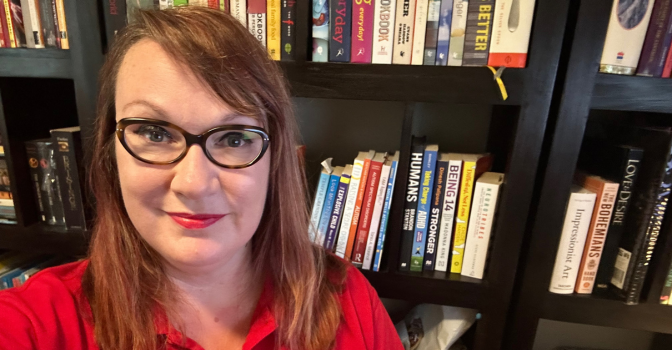Dee Thomson is our Leap in! Learning and Development Specialist and a neuro-divergent mum parenting two autistic children. We recently asked her to answer some of our Members’ most commonly asked questions about autism.
What should I do if I think my child is autistic?
If you are concerned about your child’s development, it’s a good idea to start a conversation with an early childhood professional. This could be an early childhood educator who works with your child and can share their observations, or a GP who focuses on child development and discusses development milestones.
Often early observations can include delays in either speech or communication, a difference in how your child plays and engages with you and their peers, and struggles with behaviour which may indicate that your child is experiencing distress.
There is a lot of information available and some good sites to start your research include: Autism: What Next? and Reframing Autism.
I hear a lot about autistic boys. What about girls?
This is now an area that has significant focus.
Previously, diagnostic criteria has been based on boys and how they present. However, our autistic girls don’t present autism in the same way. For example, autistic girls are often experts at masking. What this means is that from a very young age they are observing and copying their peers and their family in order to fit in.
Parents talk about how their child is ‘perfect’ at school and around other people, however when they get home to their safe space they may become really dysregulated and release their frustrations.
Parents of boys may find getting a diagnosis to be a fairly straight-forward process but this isn’t always common with girls who are often diagnosed later.
For either autistic girls or boys to thrive, it is important they have timely access to diagnosis and supports to help them understand their own identity and needs. This strength-based approach can help them learn to advocate and understand themselves.
If you would like more information on autism in girls and women, these two resources are great places to start:
My child has an autism diagnosis. What’s next?
If your child isn’t with the NDIS it’s time to work out if they are eligible. You can use our Accessing the NDIS ebook or attend one of our webinars to understand the process.
I also recommend getting your child onto waiting lists now for therapists.
There will be a lot of messaging around the urgency of things that need to be done. My advice is to stay calm and take it step by step – this is a marathon, rather than a sprint.
The first priorities are to ensure your child can communicate and to ensure you have an understanding of how to meet their sensory needs. The rest will come. Your child will need support that you will be able to connect them with, and this support will change as they develop.
There is a world of information available (overwhelmingly so!). When you are ready and as you need, there are some wonderful courses to help parents of newly diagnosed children. Most are online and can be done on demand.
Reframing Autism is an Australian autistic led organisation providing lived experience content and neuro-affirming information with short courses available for low or no cost including the autism essentials.
If this sounds like something you’d like to investigate, you can learn more here https://reframingautism.org.au/service/about-courses/.
What is identity first language?
How people identify is highly personal and to be respected. The use of language is very powerful and discussion on how to refer to our community is certainly a passionate one.
There is an ever-increasing proportion of our community preferring to use identity first language and using identity first language has been embraced by the Autism CRC who published the National Autism Guidelines recently.
Identity first language is a way of speaking that reflects that being autistic is a core part of a person’s identity. With identity first language you’ll hear someone say they’re autistic or support autistic children. Alternatively, with non-identity first language someone may say they are on the spectrum, a person with autism etc.
If you’re looking for more information on this subject you can find it here:
- Autistic Self Advocacy Network Australia and New Zealand: see position statement
- Australian Autism Alliance: see website home page
- Autism journal (major, peer-reviewed, international journal): see autism
We’re here to help.
If you’d like to speak to a member of our team about how plan management can support your child and your family with the NDIS, call 1300 05 78 78, email crew@leapin.com.au or visit our website.
Best wishes,
The Leap in! Crew

